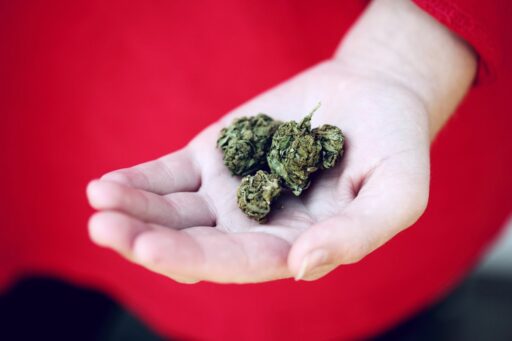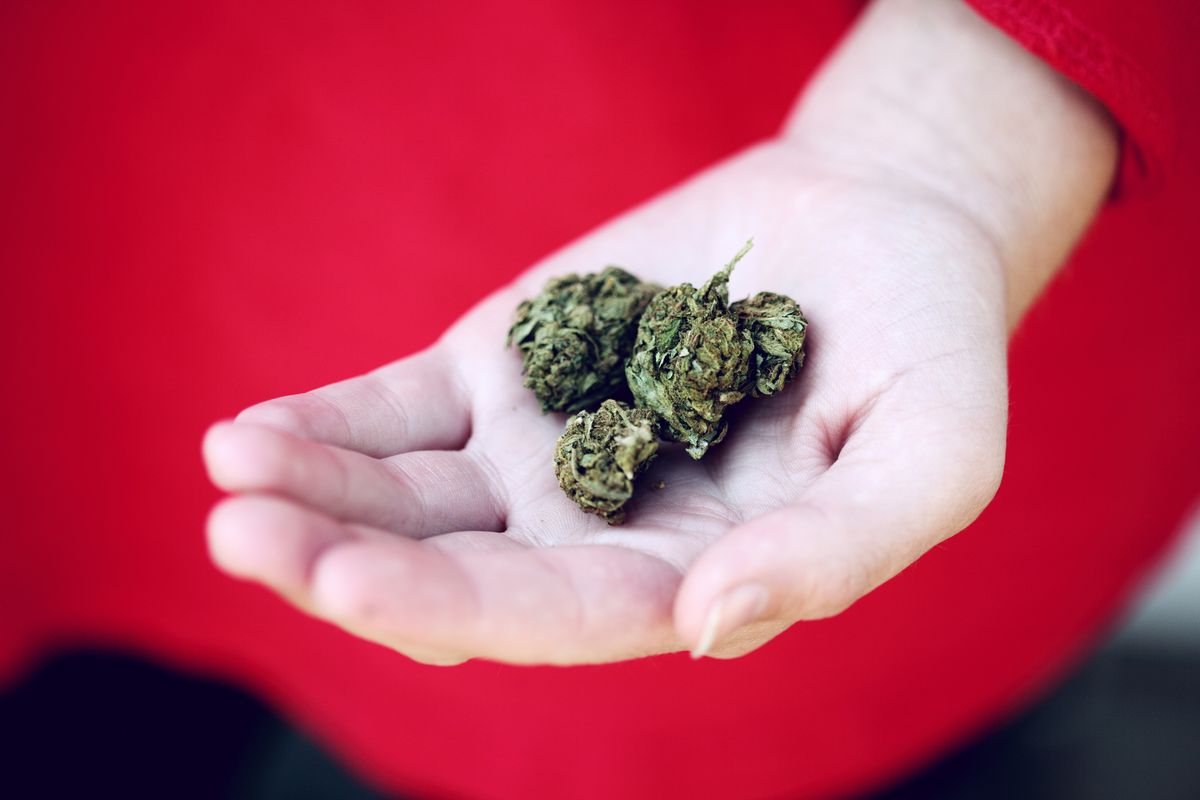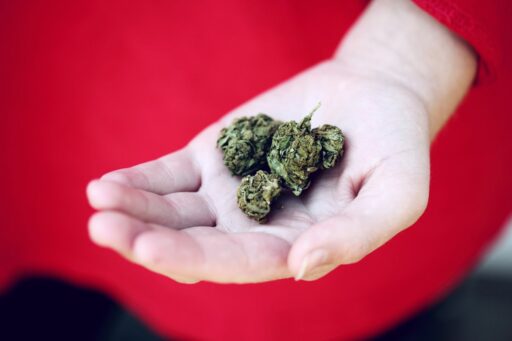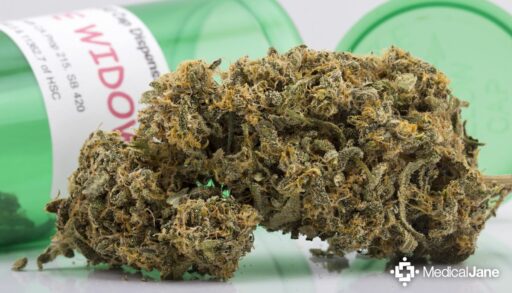Marijuana, often associated with recreational use, has a multifaceted role in the realm of health and wellness. With a growing body of research and anecdotal evidence, cannabis is being recognized for its therapeutic potential, economic impact, and legal considerations. This article delves into the various health benefits of marijuana, from its pain-relieving properties to its role in mental health treatment, while also exploring the medical, economic, and legal landscapes shaping its use.
Key Takeaways
- Cannabis offers significant therapeutic potential, particularly in pain management, sleep enhancement, and mental health, including anxiety and PTSD.
- The medical marijuana landscape is evolving, with various qualifying conditions and a structured process for obtaining a medical marijuana card.
- Economic considerations, such as marijuana stocks and the economic impact of legalization, play a crucial role in the cannabis industry.
- Innovations in cannabis consumption, including the development of new strains, edibles, and vaping products, are expanding the ways in which users can experience its benefits.
- Understanding the risks and promoting responsible use are essential, as issues like marijuana addiction, drug testing, and recreational use require careful consideration.
The Therapeutic Potential of Cannabis

Pain Relief and Management
The quest for effective pain management has led to a growing interest in the therapeutic properties of cannabis, particularly cannabidiol (CBD). Clinical trials have demonstrated CBD’s potential in reducing pain across various conditions, including arthritis, neuropathy, and even pain induced by chemotherapy.
- Arthritis: Trials show topical CBD applications can significantly alleviate joint pain.
- Neuropathy: Patients report reduced pain levels with CBD use.
- Chemotherapy-Induced Pain: Emerging studies suggest CBD may offer relief.
The transdermal delivery of CBD, while slower, has been found to be an effective method for systemic pain relief, with a lower risk of systemic side effects compared to oral administration.
The versatility of CBD in pain management is further evidenced by its application in musculoskeletal pain and scar healing. As research continues, the scope of CBD’s analgesic effects is likely to expand, offering hope for those seeking alternatives to traditional pain medications.
Sleep Enhancement and Disorders
The quest for a good night’s sleep has led many to explore the potential of cannabis, particularly its non-psychoactive compound, CBD. Clinical trials are investigating the efficacy of CBD in treating sleep-related disorders, such as insomnia and epilepsy, with promising preliminary results. Novel oral CBD products are being developed to improve delivery and maximize therapeutic effects.
Cannabis strains and their effects vary, with some specifically bred to induce relaxation and sleepiness. Here’s a list of effects that users may seek for sleep enhancement:
- Calm
- Clear mind
- Relaxed
- Sleepy
While the exact mechanisms are still being studied, the lipid profile of a formulation is crucial in influencing CBD’s bioavailability and effectiveness.
It’s important to note that while some individuals report improved sleep quality with cannabis use, others may experience different effects. Personal experiences can vary widely, and finding the right product and dosage is key to achieving the desired outcome.
Cannabis and Mental Health: Anxiety and PTSD
The intersection of cannabis and mental health is gaining significant attention, particularly in the context of anxiety and PTSD. Cannabis has been observed to offer relief for individuals struggling with these conditions, potentially altering the way emotional stimuli are processed and how the body responds to stress.
- Pain Relief: Cannabis may reduce the perception of pain, which is often a component of mental health conditions.
- Nausea Relief: For those undergoing treatments that cause nausea, cannabis can offer relief.
- Appetite Stimulation or Suppression: Depending on the strain, cannabis can help regulate appetite.
- Stress and Anxiety Relief: Many users report a calming effect, which can be beneficial for anxiety.
- Anti-inflammation: Some cannabinoids have anti-inflammatory properties that may play a role in mental health.
- Focus: Certain strains can enhance focus, which may be disrupted by anxiety or PTSD.
While the benefits are promising, it is crucial to approach cannabis use with caution, as the effects can vary greatly among individuals.
Research, such as that conducted by Crippa et al., suggests that the pharmaceutical vehicle of cannabidiol (CBD) can influence responses to emotional stimuli. This underscores the importance of understanding the nuances of cannabis products and their administration. The role of dispensaries and healthcare providers like ARCannabisClinic is pivotal in guiding patients through the therapeutic use of cannabis, ensuring they receive comprehensive medical and mental health services tailored to their needs.
Cannabis in the Medical Sphere

Qualifying Conditions for Medical Marijuana
The landscape of medical marijuana is ever-evolving, with various states adopting their own lists of qualifying conditions. Patients seeking medical marijuana must meet specific criteria, often including chronic conditions such as pain, anxiety, PTSD, and more. These conditions are recognized for their responsiveness to cannabis therapy, offering a pathway to relief for many.
- Chronic Pain
- Anxiety Disorders
- Post-Traumatic Stress Disorder (PTSD)
- Multiple Sclerosis
- Epilepsy and Seizure Disorders
- Glaucoma
- Cancer
While the qualifying conditions may vary by state, the common thread is the pursuit of an improved quality of life for patients. It’s essential for individuals to consult with a licensed physician to determine if medical marijuana is an appropriate treatment for their condition.
In states with more restrictive laws, the THC content of medical marijuana is often limited to ensure compliance with "low-THC" requirements. Patients and healthcare providers must navigate these regulations to access the therapeutic benefits of cannabis.
Navigating the Medical Marijuana Card Process
Obtaining a medical marijuana card can be a gateway to relief for many patients, but the process can seem daunting. The first step is to check your eligibility based on the qualifying conditions set by your state. Once you’ve determined that you may qualify, the next step is to find a certified physician who can assess your condition and recommend medical marijuana as part of your treatment plan.
- Check eligibility for qualifying conditions
- Schedule an appointment with a certified physician
- Complete any required medical evaluations
- Submit your application along with the physician’s recommendation
- Pay the necessary fees
- Wait for approval and receive your medical marijuana card
While the process may vary slightly from state to state, these steps provide a general framework for what to expect. It’s important to stay informed and follow the guidelines provided by your state’s medical marijuana program to ensure a smooth experience.
Once you have your card, you can visit dispensaries to obtain your prescribed cannabis products. Remember to maintain your card by keeping up with any renewal requirements. The journey from patient to cardholder is a path to empowerment, enabling access to the therapeutic benefits of cannabis under the guidance of healthcare professionals.
Patient Experiences with Medical Cannabis
The personal accounts of individuals who have used medical cannabis are as diverse as the conditions it is purported to treat. Patients often report significant improvements in their quality of life, citing relief from chronic pain, better management of anxiety, and even success in mitigating the symptoms of PTSD. These anecdotal evidences, while not yet robustly backed by scientific research, provide a compelling narrative for the potential benefits of medical marijuana.
The journey to obtaining a medical marijuana card can be fraught with challenges, but for many, the end result is a newfound sense of wellness and control over their health.
A common theme among patient experiences is the sense of empowerment that comes with being able to manage one’s own treatment. The ability to adjust dosages, select specific strains, and choose the method of consumption allows for a personalized approach to healthcare that many find liberating. Below is a list of commonly reported benefits from patients:
- Relief from chronic pain
- Reduction in anxiety and stress
- Improved sleep quality
- Enhanced mood and emotional well-being
- Better management of symptoms related to PTSD
It’s important to note that while these experiences are valuable, they should be considered alongside clinical research to fully understand the efficacy and safety of medical cannabis.
Economic and Legal Aspects of Cannabis

Marijuana Stocks and Economic Impact
The economic landscape of cannabis is ever-evolving, with marijuana stocks representing a significant aspect of this change. Despite the challenges faced in previous years, there is a growing sentiment that 2024 could be the year of the cannabis stock comeback. Investors are cautiously optimistic, eyeing improvements in operational efficiency and market stability.
The potential for growth in the cannabis industry continues to attract investors, with the promise of new markets and legislative changes fueling speculation and interest.
While the bear market of 2022 left many portfolios bruised, the resilience of the cannabis industry suggests a rebound may be on the horizon. The following table highlights key economic indicators that could signal a shift in the market:
| Indicator | 2022 Performance | 2023 Forecast | 2024 Projection |
|---|---|---|---|
| Market Cap | $X billion | $Y billion | $Z billion |
| Revenue Growth | -5% | 10% | 15% |
| Legal Markets | N | N+2 | N+4 |
As the industry matures, the economic impact of marijuana extends beyond stocks. Job creation, tax revenue, and ancillary businesses all contribute to the broader economic benefits of legalized cannabis.
Marijuana Law and Policy Developments
The landscape of marijuana law and policy is ever-evolving, with 2023 marking significant changes. The year witnessed a mixed bag of federal developments, including the Biden administration’s rescheduling of marijuana, which has been a historic step forward.
Recent legislative actions have aimed to align federal laws with the growing acceptance of marijuana use in many states. However, the intricacies of these laws vary widely across state lines, creating a complex patchwork of regulations that both consumers and businesses must navigate.
It’s essential for individuals and entities involved in the cannabis industry to stay informed about the latest legal changes to ensure compliance and to take advantage of new opportunities.
For those seeking legal advice or defense, consulting with a knowledgeable attorney is crucial. Resources like ARCannabisClinic’s guide to medical marijuana cards offer valuable insights into the legal avenues available for medical use of marijuana.
The Role of Dispensaries and Legal Access
Dispensaries play a pivotal role in the legal cannabis landscape, serving as the bridge between consumers and the regulated marijuana market. They ensure safe access to cannabis products for both recreational and medical users, while also providing education and guidance to those new to cannabis consumption.
- Eligibility: Adults 21 and over with a valid ID can access recreational dispensaries.
- Guidance: Trained staff are available to answer questions and recommend products.
- Education: Dispensaries often offer resources to learn more about cannabis use.
Dispensaries are more than just retail outlets; they are crucial in promoting responsible use and providing a controlled environment for cannabis transactions.
Navigating the legalities of cannabis can be complex, with laws varying significantly by location. It’s essential for consumers to understand their local regulations and the role of dispensaries in compliance. For those seeking medical cannabis, the process often involves additional steps, such as obtaining a medical marijuana card, which dispensaries can also assist with.
Innovations in Cannabis Consumption

Exploring Marijuana Strains and Products
The cannabis industry has seen a remarkable diversification of strains and products, catering to a wide array of preferences and needs. The choice of strain is critical, as it can significantly influence the effects experienced by the user, ranging from relaxation to heightened creativity.
- Hybrid: A balance of Indica and Sativa effects.
- Indica: Known for its relaxing and calming properties.
- Sativa: Often associated with a more energetic and uplifting experience.
- High CBD: Strains with higher CBD content for those seeking therapeutic benefits without strong psychoactive effects.
Consumers are encouraged to explore the variety of products available, from traditional flower to innovative edibles and concentrates, to find what best suits their individual needs.
The rise of marijuana drinks, edibles, and vaping products has introduced new consumption methods that offer discretion and varied dosing options. As the market expands, understanding the nuances of each product becomes essential for a tailored and enjoyable cannabis experience.
The Rise of Marijuana Drinks and Edibles
The cannabis industry has seen a significant shift with the introduction of marijuana drinks and edibles. These products offer a discreet and convenient way to consume cannabis, often with precise dosing and without the need for inhalation. The popularity of these alternatives is on the rise, as they cater to a broader range of consumers, including those who are health-conscious or new to cannabis.
Edibles, in particular, have gained attention for their delayed onset and prolonged effects. Consumers should be aware that the impairment effects of edible marijuana may be delayed by two hours or more, which is a critical consideration for responsible use. Here’s a quick guide to understanding these products:
- Start with a low dose: Especially if you’re new to edibles, begin with a small amount and wait to see how you feel.
- Be patient: The effects can take a while to kick in, so don’t be tempted to consume more too soon.
- Safe storage: Keep edibles away from children and pets, as they can be mistaken for regular food.
Please consume responsibly. There may be health risks associated with consumption of this product, and it is against the law to drive or operate machinery when under the influence.
Comparing marijuana drinks and edibles to traditional methods of consumption, it’s clear that each has its own set of benefits and considerations. While some may prefer the quick onset of smoking or vaping, others appreciate the longer-lasting and more body-focused effects of edibles. As the market continues to evolve, consumers are encouraged to educate themselves on the various options available.
Vaping Cannabis: Trends and Considerations
The landscape of cannabis consumption is ever-evolving, with vaping emerging as a popular method among users. Vape pens, known for their convenience and discretion, have become a staple for many. These devices heat cannabis oil or concentrate to a temperature that turns it into vapor, which is then inhaled.
Vaping offers a different experience compared to traditional smoking, with users often citing a cleaner taste and the absence of smoke as key benefits. However, the long-term health effects of vaping, including the use of THCP, are not fully understood. Users should be cautious and consult healthcare professionals if they have concerns.
The legal implications of vaping cannabis can vary greatly by region. In places like Texas, the possession and use of THC vape pens can lead to severe legal consequences, including potential felony charges.
It’s crucial for users to stay informed about the laws in their area to avoid legal troubles. The table below outlines some key points to consider when it comes to the legal and health aspects of vaping cannabis:
| Aspect | Consideration |
|---|---|
| Legal Status | Varies by state; can include felony charges |
| Health Implications | Long-term effects unknown; consult professionals |
| Product Types | Oils, concentrates, cartridges |
| User Experience | Cleaner taste, no smoke, discretion |
Understanding the Risks and Responsible Use

Addressing Marijuana Addiction and Dependency
While the therapeutic benefits of marijuana are widely recognized, it is crucial to address the potential for addiction and dependency. Cannabis use disorder is a concern that arises with the habitual use of marijuana, particularly when it interferes with daily life activities and responsibilities.
- Signs of Marijuana Addiction:
- Increased tolerance
- Withdrawal symptoms
- Inability to cut down usage
- Spending a lot of time obtaining marijuana
Responsible use is key to minimizing the risk of addiction. Users should be aware of their consumption patterns and seek professional help if they find it difficult to control their usage. Education on the signs of dependency and access to support systems are essential for preventing and addressing marijuana addiction.
It is important for individuals to monitor their relationship with marijuana and remain vigilant about their consumption habits to ensure that use remains within safe and healthy boundaries.
Implications of Marijuana on Travel and Drug Testing
The intersection of marijuana use with travel and drug testing presents a complex legal and practical landscape. Travelers must navigate varying laws across states and countries, where the legality of marijuana can differ drastically. In some regions, possession of marijuana could lead to severe penalties, while others may have decriminalized or even legalized its use.
- Legal Status: Always check the local laws regarding marijuana possession and use before traveling.
- Drug Testing: Employers may require drug testing, and positive results could impact employment status.
- Carry Documentation: If traveling with medical marijuana, carry the necessary medical documentation and understand the legal implications.
While marijuana may offer therapeutic benefits, it is crucial to remain aware of the legal boundaries and potential risks when traveling or facing drug testing scenarios. The responsibility lies with the individual to stay informed and compliant with the laws to avoid legal complications.
Recreational Marijuana: Balancing Enjoyment and Health
The use of marijuana for recreational purposes has become increasingly popular, with many individuals seeking both enjoyment and relaxation from its consumption. Balancing the recreational use of marijuana with health considerations is essential to ensure a positive experience while minimizing potential risks. Responsible use includes understanding the potency of different strains, adhering to local laws, and recognizing personal limits.
- Be aware of the THC content in different products.
- Follow state regulations regarding possession and consumption.
- Avoid driving or operating heavy machinery after use.
Please consume responsibly. This product has not been analyzed or approved by the Food and Drug Administration (FDA). There may be associated health risks, and it is against the law to drive or operate machinery when under the influence of this product.
While recreational marijuana can provide relaxation and enjoyment, it’s important to stay informed about the various aspects that can influence your experience. From the type of product consumed to the setting in which it’s used, each factor plays a role in the overall impact on health and well-being.
Conclusion
In summary, the exploration of marijuana’s health benefits reveals a multifaceted plant with the potential to offer relief and recovery across a spectrum of conditions. From the calming effects of CBD to the pain-relieving properties of THC, cannabis has proven to be a valuable ally in the realm of health and wellness. Beyond its medicinal applications, it also provides economic opportunities and a means for relaxation and social enjoyment. As the legal landscape continues to evolve, access to marijuana and its benefits is becoming more widespread, offering hope and improved quality of life to many. Whether utilized for medical purposes or personal enjoyment, the varied benefits of marijuana are a testament to its growing acceptance and the ongoing need for comprehensive research and informed policy-making.
Frequently Asked Questions
What are the qualifying conditions for obtaining a medical marijuana card?
Qualifying conditions for medical marijuana cards vary by state, but commonly include chronic pain, anxiety, PTSD, and other serious medical conditions. Detailed information can be found through resources like ARCannabisClinic or by consulting with a licensed MMJ doctor.
How can cannabis contribute to health and wellness?
Cannabis can offer pain relief, nausea relief, appetite stimulation or suppression, stress and anxiety relief, anti-inflammation, and help with focus. It’s also used to treat and manage side effects of various medical conditions.
What should I consider when exploring marijuana for recreational use?
When using marijuana recreationally, it’s important to understand the risks, ensure responsible use, and be aware of the legal implications in your area. Balancing enjoyment with health is key to a positive experience.
Can I travel with marijuana, and what should I know about drug testing?
Traveling with marijuana can be legally risky as laws vary by location. It’s crucial to be informed about the laws of your destination. Regarding drug testing, THC can be detected in your system for days to weeks, so plan accordingly.
What are some innovative ways to consume cannabis?
Innovative consumption methods include a variety of marijuana strains, edibles, drinks, and vaping products. Each method offers different experiences and benefits, and it’s important to choose based on personal preference and health considerations.
How does one navigate the process of getting access to medical marijuana?
To access medical marijuana, you must obtain a medical marijuana card, which involves a qualifying diagnosis from a licensed physician, application to a state program, and following specific state guidelines. Services like ARCannabisClinic can assist with the process.





